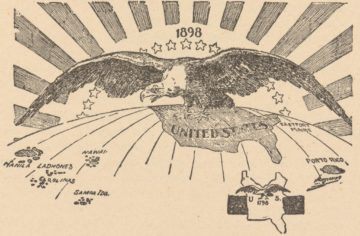Joshua Sooter at Public Books:
 A student once asked—after a classroom discussion of how 19th-century westward expansion connected to the ongoing injustices of American military bases in the Pacific—what she was supposed to do with this knowledge. Her question was as genuine as it was perceptive. It also felt like I had, again, failed.
A student once asked—after a classroom discussion of how 19th-century westward expansion connected to the ongoing injustices of American military bases in the Pacific—what she was supposed to do with this knowledge. Her question was as genuine as it was perceptive. It also felt like I had, again, failed.
As a historian and an educator of college students, my experience teaching about US imperialism is one of disappointment. I have largely failed to engender in my students a deep engagement with America’s imperial past and present. I believe in the importance of education and history. Yet, what the past years have shown me is that the classroom alone is insufficient in teaching the social and psychological realities of US imperialism.
When I ask students to define what an empire is, they typically picture Rome or the British Empire, not the United States. Imperialism, expansion, and colonialism have been integral to every period of America’s existence, including the present. Much of my work as a historian and an educator focuses on conveying and exploring this fact. Every year, however, I witness students struggling to internalize it.
More here.
